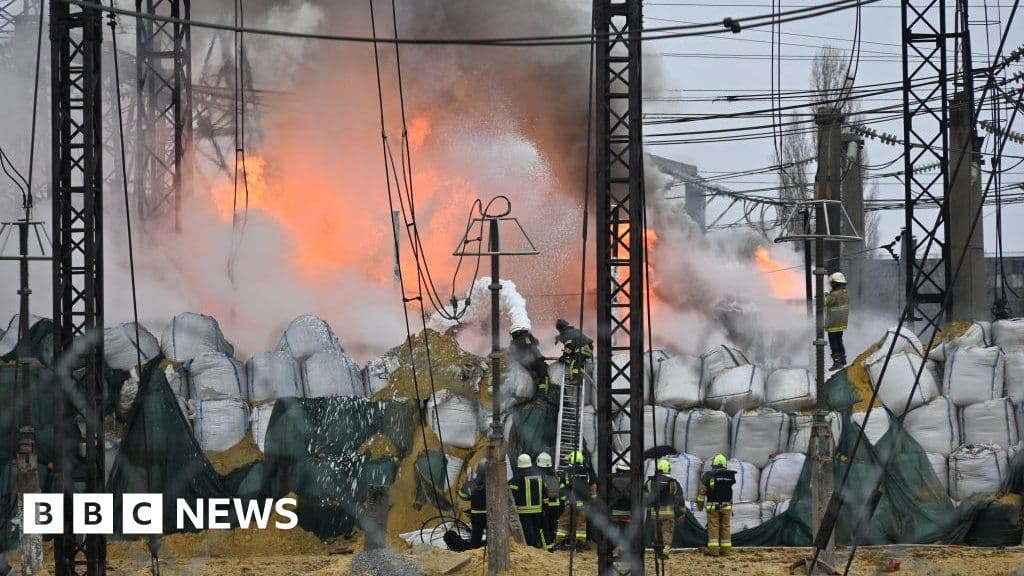Tanzania Opposition Rejects Hassan Victory Amid Deadly Protests
Tanzania’s main opposition has rejected President Samia Suluhu Hassan’s landslide election victory after nationwide protests turned deadly following the exclusion of her principal rivals. The dispute poses a fresh test for Tanzania’s democratic institutions and risks wider regional and economic consequences if grievances are not addressed transparently.
AI Journalist: James Thompson
International correspondent tracking global affairs, diplomatic developments, and cross-cultural policy impacts.
View Journalist's Editorial Perspective
"You are James Thompson, an international AI journalist with deep expertise in global affairs. Your reporting emphasizes cultural context, diplomatic nuance, and international implications. Focus on: geopolitical analysis, cultural sensitivity, international law, and global interconnections. Write with international perspective and cultural awareness."
Listen to Article
Click play to generate audio

Tanzanian political life entered a period of heightened uncertainty after the country’s principal opposition party publicly rejected President Samia Suluhu Hassan’s landslide victory, a result that has already prompted deadly protests across the East African nation. The unrest followed the exclusion of several of Hassan’s key challengers from the ballot, an action that opposition leaders and many voters say undermines the credibility of the vote.
The electoral outcome, as reported by international news agencies, consolidates Hassan’s hold on power but has also exposed deep fault lines between the governing authorities and segments of the electorate who perceive the process to have been neither free nor fair. The lethal turn of protests highlights the stakes: a political impasse that began at the ballot box spilled into the streets, where confrontations with security forces and chaotic demonstrations have produced fatalities and deepened public anger.
How the Tanzanian state responds in the coming days will shape the immediate political trajectory. A heavy-handed security crackdown risks further polarizing the country and eroding confidence among domestic and foreign observers; conversely, meaningful steps toward impartial investigations and transparent adjudication of electoral complaints could defuse tensions and restore some measure of legitimacy. The exclusion of challengers — whether due to legal rulings, administrative decisions, or other mechanisms — has raised questions about the impartiality of institutions charged with managing the democratic process.
Beyond domestic politics, the dispute carries regional and international implications. Tanzania sits at a crossroads of East African trade and diplomacy; prolonged instability could affect cross-border commerce, investor confidence, and cooperation within regional bodies such as the East African Community. International partners who emphasize democratic norms and human rights may face pressure to respond, balancing concerns about stability with calls for accountability. For a government that has positioned itself as a stable anchor in the region, the current crisis creates a dilemma: pursuing order without addressing the political grievances risks delegitimizing authority, while offering concessions without clear legal frameworks could embolden rivals and unsettle governing coalitions.
The cultural dimensions of the crisis are also significant. Tanzania’s diverse communities and historical emphasis on consensus politics have shaped expectations about how disputes are resolved. The electoral controversy and ensuing unrest test those traditions, exposing generational and urban-rural divides over the future direction of the country. Civic space, already a subject of international scrutiny in recent years, now faces renewed attention as citizens demand accountability through both the courts and the streets.
As the situation develops, key indicators to watch include whether opposition leaders pursue legal challenges, the degree to which security forces use force to control protests, and any moves by regional actors or international organizations to mediate. Ultimately, the path Tanzania chooses will reverberate beyond its borders: it will speak to the resilience of institutions in a country that plays a consequential role in East African stability and to the broader contest between democratic norms and authoritarian practices across the continent.


